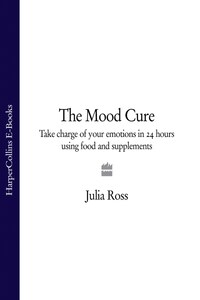We certainly need a Mood Cure in the United States, but do you need one in the United Kingdom? Let’s compare the emotional facts of life in the U.S. with those in the U.K. They’re similar, but there are some interesting differences.
U.S. rates of depression and anxiety have tripled in the past ten years, with more than one in five adults now affected. The use of antidepressants is increasing so rapidly among both adults and children that Prozac (Fluoxetine) has become one of the ten top-selling drugs in the country.
How does the mood climate in the U.K. compare? According to the World Health Organization, depression is the second most common disability, after heart disease, throughout Europe, including the U.K., just as it is in the U.S. Within the U.K. itself, more than one in six adults were found to be either depressed, anxious, or both, in a large government survey published in 2001. As a result, Britons are also using antidepressants routinely, but not at quite the U.S. rate. In 2000, Fluoxetine became the seventeenth largest selling drug in the country and Efexor the eighteenth.
What accounts for the British having a serious, but somewhat less alarming, incidence of mood malaise than we have in the U.S.? There are three major factors at work here: food quality, exercise frequency, and access to bright sunlight. The food quality in the U.K. is slightly superior to that in the U.S., with more fresh food and less packaged food eaten, though that quality is steadily declining as it follows U.S. trends. On the other hand, British weather is much worse and Britons are almost as sedentary as Americans. This means that the dietary advantage that you in Britain still have is partly counterbalanced by lack of sunlight and lack of exercise, so you must vigilantly safe-guard it.
The Mood Cure is intended to help you discover mood-healthy foods and avoid mood-toxic foods by learning from our Yankee mistakes. For example, as you read about the low-fat experiment that failed in the U.S., you can consider enjoying butter on your potatoes once again.
This book will also recommend some wonderfully helpful nutrient supplements. Take Vitamin D, for example. It can be a powerful mood enhancer and is especially critical for you in the U.K. because you don’t get enough sunlight to stimulate its natural production. In 2002 the results of a study on the use of supplements made headlines all over the U.K. In it two groups of prisoners in a maximum-security prison were given identical meals three times a day. One group was given vitamins, minerals and essential fats as supplements, including 800 IU’s of Vitamin D, the Sunshine Vitamin. The other group was given dummy capsules. Those given the supplements committed 40% fewer violent crimes than those who were not.
Our experience at the U.S. clinic that I run is similar to that of the clinicians who administered the U.K. prison study: we have observed that, even when people adopt a relatively nutritious diet (most Americans subsist on diets inferior to the prison diet in the U.K. study!), it’s often not enough to reverse the deeper nutrient deficiencies that can trigger feelings like irritability, depression, anxiety and stress. The use of therapeutic dietary supplements, for a few months, is usually critical for the effective relief of these kinds of mood problems.














